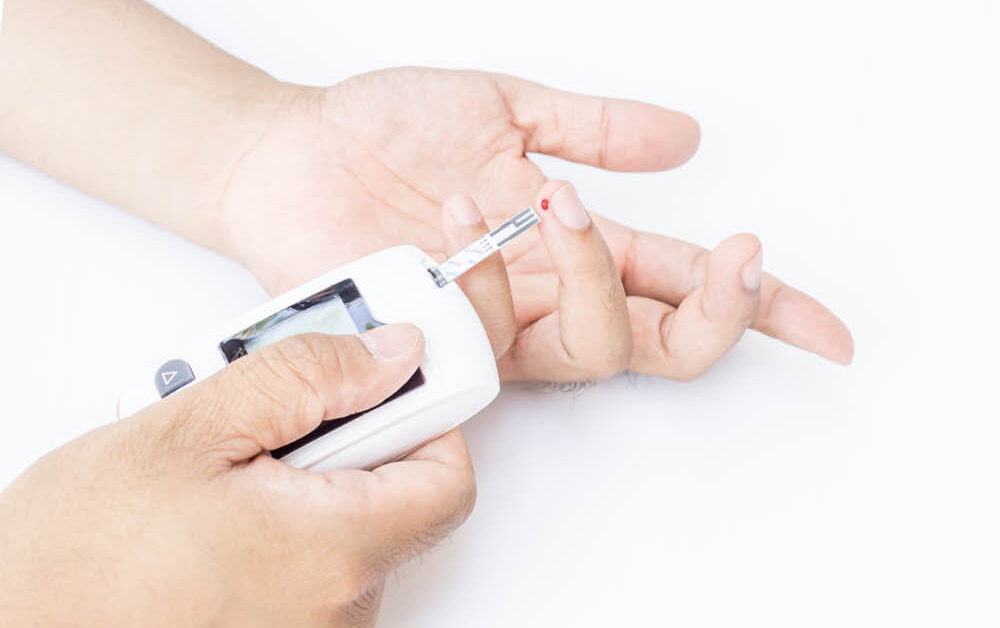
When Allergies Become Extreme
February 2021
Tee Time
February 2021by Kristy Como Armand
Blindness. Amputation. Heart Attack. Stroke. Kidney Failure. These may sound like frightening worst-case diabetic scenarios, but they are the all-too-real complications that can occur when blood sugar, blood pressure, and cholesterol are out of control.
“Most people with diabetes don’t want to think serious problems like these will happen to them,” says Tyler Zachary, MD, endocrinologist with the Endocrinology Center of SWLA. “Unfortunately, it sometimes takes a serious wake-up call like a foot infection or bleeding vessels in the eye before a patient realizes the very real risk of complications they face if they don’t manage their disease.”
Diabetes results when the body either doesn’t produce insulin, produces too little of it, or doesn’t respond to the insulin it does produce. Without insulin the body can’t metabolize sugar. Over time, high blood sugar slowly injures the blood vessels, nerves, and organs in your body.
More than 34 million Americans—approximately 1 in 10 – have diabetes, according to data from the CDC (Centers for Disease Control and Prevention). Those with diabetes have medical expenditures approximately 2.3 times higher than they would without the disease, according to the ADA (American Diabetes Association). The annual cost of diagnosed diabetes in the United States is more than $327 billion.
Dr. Zachary explains that the higher your blood sugar is, and the longer it stays high, the worse the damage becomes. “Damage is slow and occurs over a period of years, but it probably begins when blood sugar is at mildly elevated levels. This means the damage has likely begun before a person is even aware they have the disease. Many people have the disease for five to seven years before being diagnosed.”
Dr. Tyler Zachary adds that damage to the body from diabetes does not occur in the same way for everyone, and that genetics probably influence which complications you are more susceptible to. “Although the potential complications of diabetes are serious, they are not inevitable.” Dr. Zachary offers the following suggestions for reducing your risk:
- Be committed. Your healthcare providers will help you learn the basics of diabetes care and offer support and encouragement along the way, but it’s up to you to manage your condition. Learn all you can about diabetes. Make healthy eating and physical activity part of your daily routine in order to maintain a healthy weight. Monitor your blood sugar level and follow your doctor’s instructions for keeping it within your target range. Don’t be afraid to ask for help and guidance when you need it.
- See your doctor(s) regularly. Your regular diabetes checkups aren’t meant to replace yearly physician visits or routine eye exams. An annual physical gives your doctor the opportunity to look for any diabetes-related complications, including signs of kidney damage, nerve damage and heart disease, as well as screen for other medical problems. Your eye care specialist will check for signs of retinal damage, cataracts and glaucoma.
- Keep your vaccines up-to-date. High blood sugar can weaken your immune system, which makes routine vaccinations even more important for diabetics. Ask your doctor about flu, pneumonia and other recommended vaccinations.
- Take care of your oral health. Diabetics are more likely to get gum infections. Brush your teeth at least twice a day, floss your teeth once a day, and schedule dental exams at least twice a year. Consult your dentist right away if your gums bleed or look red or swollen.
- Pay attention to your feet. High blood sugar can damage the nerves in your feet and reduce blood flow to your feet. Left untreated, cuts and blisters can become serious infections. To prevent foot problems, wash your feet daily and dry gently, especially between the toes. Moisturize your feet and ankles with lotion. Check your feet daily for problems such as blisters, cuts, redness or swelling. Consult your doctor if you have a sore that doesn’t start to heal within a few days.
- Manage blood pressure and cholesterol. Like diabetes, high blood pressure can damage your blood vessels. High cholesterol is a concern, too, since the damage is often worse and more rapid when you have diabetes. When these conditions team up, they can lead to a heart attack, stroke or other life-threatening conditions. Eating healthy foods and exercising regularly are the best ways to control high blood pressure and cholesterol. If you require medication, be sure to take as directed.
- Don’t smoke. If you smoke or use other types of tobacco, ask your doctor to help you quit. Smoking increases your risk of various diabetes complications, including heart attack, stroke, nerve damage and kidney disease. In fact, smokers who have diabetes are three times more likely to die of cardiovascular disease than are nonsmokers who have diabetes, according to the ADA.
- If you drink alcohol, do so responsibly. Alcohol can cause either high or low blood sugar, depending on how much you drink and if you eat at the same time. If you choose to drink, do so only in moderation and always with a meal. Remember to include the calories from any alcohol you drink in your daily calorie count.
- Control stress. The hormones your body may produce in response to prolonged stress may prevent insulin from working properly, which only makes matters worse. In addition, when you are stressed, you’re more likely to abandon your usual diabetes care routine. To take control, set limits, prioritize your tasks, learn relaxation techniques and get plenty of sleep.
“Diabetes care is within your control,” stresses Dr. Zachary. “If you’re willing to do your part, diabetes won’t stand in the way of an active, healthy life."
For more information about diabetes management, call Dr. Zachary at the Endocrinology Center, (337) 310-3670.






